Lotus Emeya vs Porsche Taycan Wagon - Differences and prices compared
Compare performance (918 HP vs 952 HP), boot space and price (92600 £ vs 88700 £ ) at a glance. Find out which car is the better choice for you – Lotus Emeya or Porsche Taycan Wagon?
Costs and Efficiency:
Looking at overall running costs, both models reveal some interesting differences in everyday economy.
Porsche Taycan Wagon has a barely noticeable advantage in terms of price – it starts at 88700 £ , while the Lotus Emeya costs 92600 £ . That’s a price difference of around 3848 £.
In terms of energy consumption, the advantage goes to the Porsche Taycan Wagon: with 17.50 kWh per 100 km, it’s slight more efficient than the Lotus Emeya with 18.70 kWh. That’s a difference of about 1.20 kWh.
As for electric range, the Porsche Taycan Wagon performs to a small extent better – achieving up to 652 km, about 72 km more than the Lotus Emeya.
Engine and Performance:
Power, torque and acceleration say a lot about how a car feels on the road. This is where you see which model delivers more driving dynamics.
When it comes to engine power, the Porsche Taycan Wagon has a hardly perceptible edge – offering 952 HP compared to 918 HP. That’s roughly 34 HP more horsepower.
In acceleration from 0 to 100 km/h, the Porsche Taycan Wagon is somewhat quicker – completing the sprint in 2.40 s, while the Lotus Emeya takes 2.80 s. That’s about 0.40 s faster.
In terms of top speed, the Porsche Taycan Wagon performs minimal better – reaching 260 km/h, while the Lotus Emeya tops out at 256 km/h. The difference is around 4 km/h.
There’s also a difference in torque: Porsche Taycan Wagon pulls somewhat stronger with 1110 Nm compared to 985 Nm. That’s about 125 Nm difference.
Space and Everyday Use:
Whether family car or daily driver – which one offers more room, flexibility and comfort?
Seats: Lotus Emeya offers to a small extent more seating capacity – 5 vs 4.
In curb weight, Porsche Taycan Wagon is somewhat lighter – 2190 kg compared to 2555 kg. The difference is around 365 kg.
In terms of boot space, the Lotus Emeya offers to a small extent more room – 509 L compared to 446 L. That’s a difference of about 63 L.
In maximum load capacity, the Lotus Emeya performs somewhat better – up to 1388 L, which is about 176 L more than the Porsche Taycan Wagon.
When it comes to payload, Porsche Taycan Wagon minimal takes the win – 605 kg compared to 545 kg. That’s a difference of about 60 kg.
Who wins the race?
The Porsche Taycan Wagon proves to be slightly ahead and therefore becomes our DriveDuel Champion!
Porsche Taycan Wagon is the better all-rounder in this comparison.
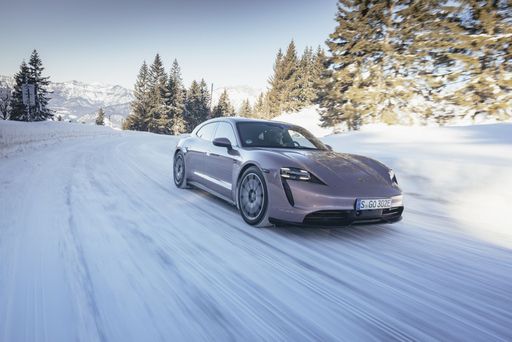
Porsche Taycan Wagon
Costs and Consumption
View detailed analysis
Engine and Performance
View detailed analysis
Dimensions and Body
View detailed analysis
Lotus Emeya
The Lotus Emeya arrives as a sleek electric grand tourer that manages to marry Lotus' trademark razor-sharp handling with enough practicality for daily life, so you can enjoy a corner with a grin and still fit the shopping. Inside it feels surprisingly grown-up — plush materials, smart tech and a driver-focused cockpit make it a tempting choice for buyers who want electric performance without losing the joy of driving.
details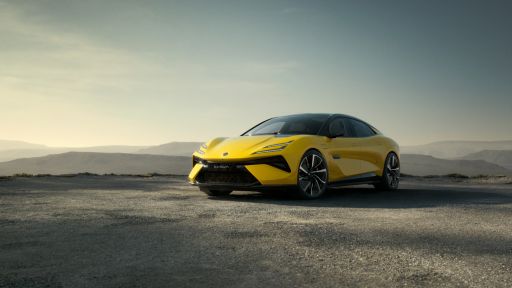
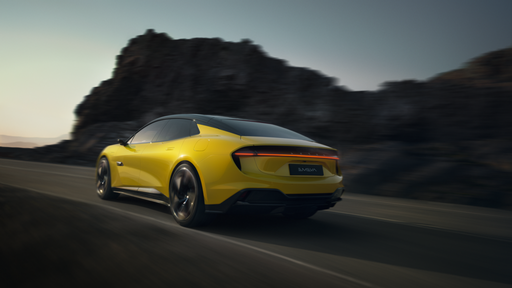
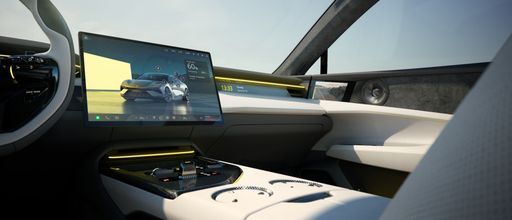
Porsche Taycan Wagon
The Porsche Taycan Cross Turismo dresses electric sportscar intent in a practical, slightly rugged estate body, delivering rare performance thrills with genuine everyday usefulness. It feels unmistakably Porsche inside — taut, premium and driver-focused — while the raised ride and extra luggage space make it as happy on a muddy weekend escape as it is on a twisty back road.
details
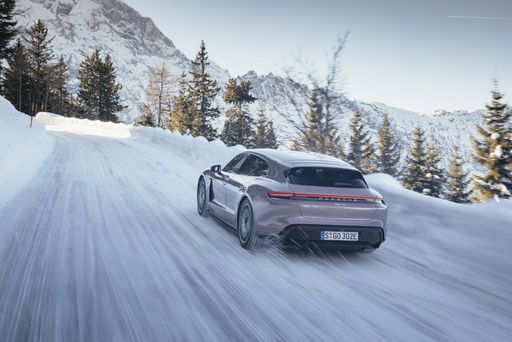
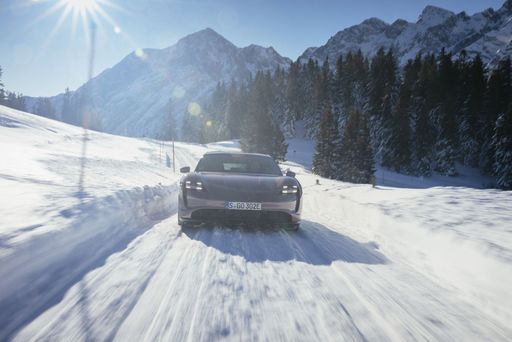
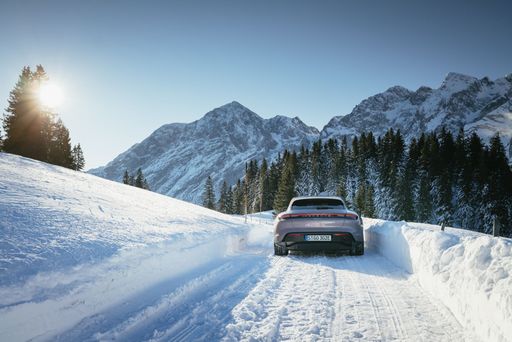
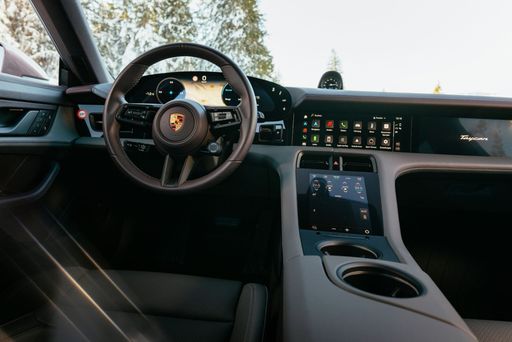
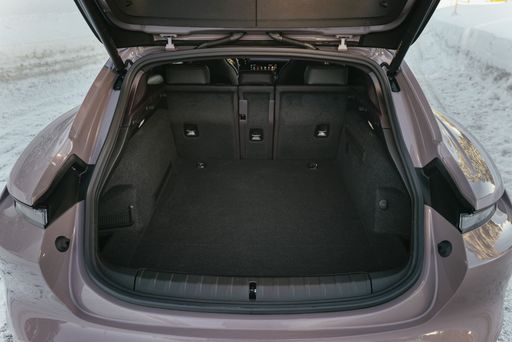
Costs and Consumption |
|
|---|---|
|
Price
92600 - 138000 £
|
Price
88700 - 182100 £
|
|
Consumption L/100km
-
|
Consumption L/100km
-
|
|
Consumption kWh/100km
18.7 - 22.4 kWh
|
Consumption kWh/100km
17.5 - 19 kWh
|
|
Electric Range
485 - 580 km
|
Electric Range
537 - 652 km
|
|
Battery Capacity
98.90 kWh
|
Battery Capacity
82.3 - 97 kWh
|
|
co2
0 g/km
|
co2
0 g/km
|
|
Fuel tank capacity
-
|
Fuel tank capacity
-
|
Dimensions and Body |
|
|---|---|
|
Body Type
Hatchback
|
Body Type
Estate
|
|
Seats
5
|
Seats
4
|
|
Doors
5
|
Doors
5
|
|
Curb weight
2555 - 2650 kg
|
Curb weight
2190 - 2400 kg
|
|
Trunk capacity
509 L
|
Trunk capacity
405 - 446 L
|
|
Length
5139 mm
|
Length
4962 - 4974 mm
|
|
Width
2005 mm
|
Width
1966 - 1967 mm
|
|
Height
1459 mm
|
Height
1388 - 1412 mm
|
|
Max trunk capacity
1388 L
|
Max trunk capacity
1171 - 1212 L
|
|
Payload
450 - 545 kg
|
Payload
475 - 605 kg
|
Engine and Performance |
|
|---|---|
|
Engine Type
Electric
|
Engine Type
Electric
|
|
Transmission
Automatic
|
Transmission
Automatic
|
|
Transmission Detail
Reduction Gearbox
|
Transmission Detail
Reduction Gearbox
|
|
Drive Type
All-Wheel Drive
|
Drive Type
All-Wheel Drive, Rear-Wheel Drive
|
|
Power HP
612 - 918 HP
|
Power HP
408 - 952 HP
|
|
Acceleration 0-100km/h
2.8 - 4.2 s
|
Acceleration 0-100km/h
2.4 - 4.8 s
|
|
Max Speed
250 - 256 km/h
|
Max Speed
220 - 260 km/h
|
|
Torque
710 - 985 Nm
|
Torque
410 - 1110 Nm
|
|
Number of Cylinders
-
|
Number of Cylinders
-
|
|
Power kW
450 - 675 kW
|
Power kW
300 - 700 kW
|
|
Engine capacity
-
|
Engine capacity
-
|
General |
|
|---|---|
|
Model Year
2025
|
Model Year
2024 - 2025
|
|
CO2 Efficiency Class
A
|
CO2 Efficiency Class
A
|
|
Brand
Lotus
|
Brand
Porsche
|
What drive types are available for the Lotus Emeya?
Available configurations include All-Wheel Drive.




